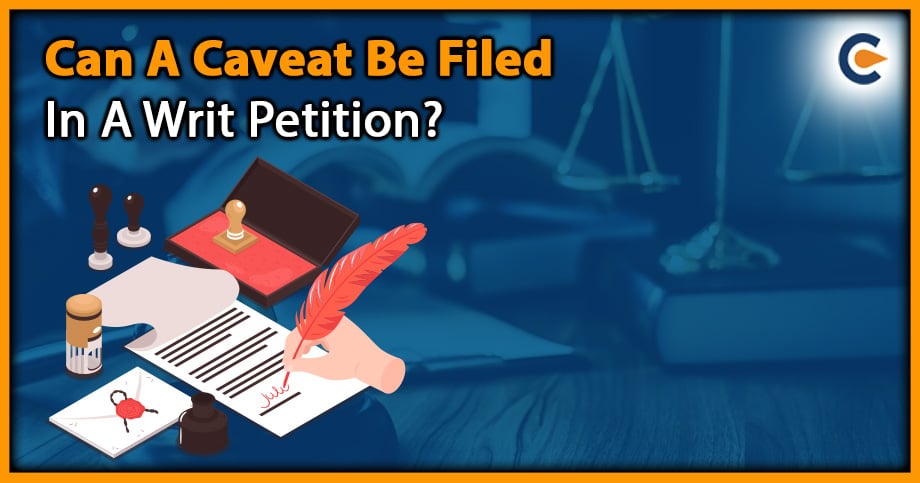In the legal system, a caveat petition is a legal mechanism used to ensure that a party is given notice before any orders or decisions are made by a court or a judicial authority. It serves as a warning to the court that the petitioner has an interest in the matter and wants to be heard before any decision is made. The question arises as to whether a caveat can be filed in a Writ Petition.
A writ petition is a petition filed before a High Court or the Supreme Court of India[1], seeking the issuance of a writ for the enforcement of a fundamental right or any other legal right. The writ jurisdiction of the High Court and the Supreme Court is considered to be an extraordinary jurisdiction that is exercised in exceptional circumstances where a person’s fundamental rights or any other legal rights are violated. In such cases, the court has the power to issue writs such as Habeas Corpus, Mandamus, Prohibition, Certiorari, and Quo Warranto.
The question of whether a caveat can be filed in a Writ Petition has been a matter of debate. Some legal experts believe that a caveat cannot be filed in a Writ Petition as the Writ Petition is not a regular civil proceeding, but an extraordinary remedy. They argue that writ jurisdiction is exercised in exceptional circumstances, and the court is expected to give priority to the speedy resolution of the matter. Therefore, the filing of a caveat may delay the proceedings and defeat the purpose of the writ petition.
However, others believe that a caveat can be filed in a Writ Petition, as long as it is done within the prescribed time limit and under the correct court or judicial authority. They argue that caveats are used to safeguard the interests of a party who may be affected by an order or decision of the court. In a Writ Petition, the court is expected to give notice to the parties concerned and provide an opportunity to be heard. The filing of a caveat may serve as a reminder to the court to give notice to the petitioner before any order or decision is made. The Supreme Court of India has held in various cases that the filing of a caveat is permissible in extraordinary writ petitions, subject to the fulfilment of certain conditions. In the case of State of Karnataka v. Ranganatha Reddy, the Supreme Court held that a caveat can be filed in a Writ Petition, subject to the condition that the petitioner must serve a notice on the caveator and give them an opportunity to be heard before passing any order.
Conclusion
In conclusion, a caveat can be filed in a writ petition, but it is important to understand the specific circumstances and conditions under which it can be done. As we have seen, a caveat can be a useful legal tool to ensure that a party is given notice and an opportunity to be heard before any decision is made by the court, thus safeguarding their rights and interests. However, it is important to follow the proper procedures and guidelines when filing a caveat to ensure that it is admissible in court and serves its intended purpose.
It is also worth noting that a caveat does not guarantee a favourable outcome for the party filing it. The court may still make a decision that is averse to their interests, but the filing of a caveat can provide a level of protection and peace of mind for the party involved. It is crucial to work with a legal professional to assess whether filing a caveat is appropriate in a particular case, and to ensure that it is done correctly.
Furthermore, as the legal system continues to evolve, the rules and procedures around filing caveats may change. It is therefore important to stay up to date with any changes in the law and to seek guidance from legal experts to ensure that the filing of a caveat is done in accordance with the latest legal requirements.
In summary, while the decision to file a caveat in a writ petition should be taken with careful consideration, it can be an effective way to protect the interests of a party in a legal dispute. By following the proper procedures and seeking the guidance of legal experts, parties can ensure that their caveat is admissible and serves its intended purpose in safeguarding their rights and interests.
Also Read:
Section 148A Of Code Of Civil Procedure – Right To Lodge A Caveat Petition











